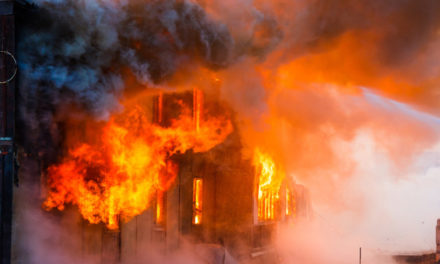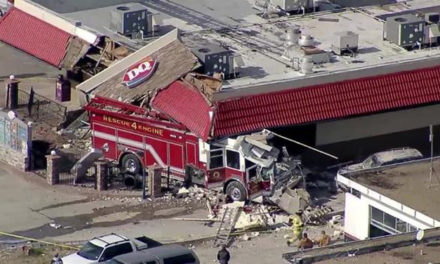A recent New York appellate case has affirmed the principle that fire departments are protected by the government immunity doctrine for discretionary acts which are alleged to be negligent and have caused damage. The case was Stevens & Thompson Paper Company v. Middle Falls Fire Department. The decision of the Supreme Court, Appellate Division, was published on November 25, 2020.
Here are the facts.
In the early morning on April 6, 2014, a large fire broke out at an abandoned paper mill in Greenwich, Washington County NY. There were no hydrants nearby, so the Middle Falls Fire Department set up an engine to pump water from a nearby canal. The pump was in continuous operation but when water was not needed for the fire a deck gun on the engine shot the water into a ravine so it could flow into the nearby Battenkill River while keeping the deck gun operational.
Unfortunately, the stream of water from the deck gun passed over a nearby hydroelectric facility and rained down on its powerhouse. The water seeped into the powerhouse, causing significant mechanical damage that forced the facility offline for a prolonged period.
The owner of the hydroelectric facility sued the Middle Falls Fire Department for damages, alleging negligence, nuisance and trespass related to the water discharge onto its property.
The plaintiff’s claim against the fire department was dismissed by the trial court, and in the decision published in November 2020 the Appellate Division affirmed the dismissal.
Even if there was a special relationship with the plaintiff that would have permitted a claim of negligence, the court noted that the department was nevertheless shielded from liability for discretionary actions taken during the performance of its governmental functions.
The analysis is interesting. Fire protection is unquestionably a government function, and obtaining water necessary to provide fire protection is also a government function. The key issue to the court, then, was whether the fire department’s purportedly negligent acts – that is, its decisions to use the deck gun and also to aim it towards the powerhouse – were discretionary in that they arose from the exercise of reasoned judgment which would typically produce acceptable results.
According to the court, the firefighters tasked with obtaining water for the fire indicated that they selected the pumping site because of its access to the water in the canal, and they used the deck gun to discharge unneeded water so that the pump could continuously operate to supply water to the fire, and they directed the spray to a place they thought was safe for the public and for themselves.
The court reasoned that “the decisions relating to the deck gun resulted from the exercise of reasoned judgment that, as a result, rendered the fire department defendants immune from liability for ordinary negligence.”
According to the court, “plaintiff complains that alternatives to using the deck gun were not considered and that the potential hazards of its use were overlooked, but a fire department is not chargeable with negligence for failure to exercise perfect judgment in discharging the governmental function of fighting fires. Even when viewed in the light most favorable to plaintiff … the foregoing demonstrates that the decisions relating to the deck gun resulted from the exercise of reasoned judgment that, as a result, rendered the fire department defendants immune from liability for ordinary negligence.” [emphasis added and citations and quotation marks omitted].





